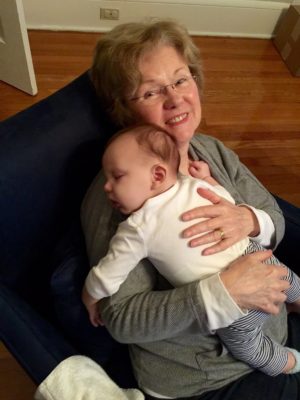 You’ve probably heard people say babies are like blank slates, just waiting to be filled up with knowledge. I thought that, too, until our first baby was born. It became pretty obvious quite soon that this tiny creature was already making a big impact on her world. We were at her beck and call – meeting her needs when she let us know she was hungry, wet, tired, or ready for cuddles and playful interaction.
You’ve probably heard people say babies are like blank slates, just waiting to be filled up with knowledge. I thought that, too, until our first baby was born. It became pretty obvious quite soon that this tiny creature was already making a big impact on her world. We were at her beck and call – meeting her needs when she let us know she was hungry, wet, tired, or ready for cuddles and playful interaction.
Like most new parents, we thought she was spectacular and brilliant. As a matter of fact, she, along with most new babies, was! Scientific research over the past 30 years underscores this. According to the filmmaker, Estela Renner, “When kids are born, they’re already little scientists exploring the world.” Her new documentary, The Beginning of Life, is available on Amazon, iTunes, and Google Play. Alison Gopnik, a psychology professor who has spent decades studying child development, says in the film, “Babies are the best learning machines in the universe.”
The 90-minute feature documentary was created in response to advancements in neuroscience that uncover the crucial role that the early years of children’s lives play in determining their future successes. The film focuses on babies and their families and opportunities for learning in everyday circumstances. So does Best Beginnings’ 14-minute film, Babies on Track. (You can watch a 90-second preview of Babies on Track, and find out how you can obtain a copy of the video and two Alaska-themed board books here.)
A baby’s brain makes some 700-1,000 neural connections EVERY SECOND in the first few years of life. The connections that form early provide either a strong or weak foundation for the connections that form later. Caring adults and nurturing environments support positive, strong brain architecture. As a result, children will thrive.
For more resources to support the growth and development of these “little scientists” and “best learning machines,” click here.

